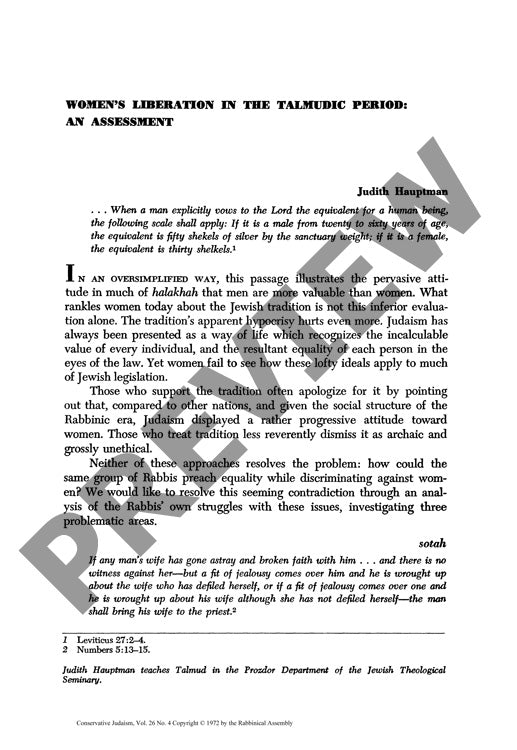Womens Liberation in the Talmudic Period
Couldn't load pickup availability
As Judaism's religious authorities grappled with gender inequities embedded in biblical law, Talmudic rabbis embarked on a remarkable project of legal reform through innovative interpretations. Their systematic efforts to expand women's rights reveal a profound tension between inherited tradition and evolving ethical consciousness. Through close analysis of Mishnaic and Talmudic sources, three areas emerge as critical battlegrounds for gender equality: the sotah (suspected adulteress) ordeal, inheritance laws, and divorce regulations. The rabbis' interpretive strategies proved transformative - they mandated equal punishment for male adulterers, invalidated the sotah ordeal for guilty husbands, created mechanisms like shtar hatzi zakhar to enable daughter inheritance, and established women's right to initiate divorce proceedings. While falling short of complete gender equality, these legal reforms demonstrate that Judaism's ethical framework actively evolved to address discrimination, with rabbis serving as agents of progressive change rather than mere preservers of tradition. Their pragmatic balancing of precedent and progress offers a compelling model for contemporary Jewish communities seeking to advance egalitarian values through established interpretive processes.

More Information
-
Physical Description
-
Publication Information
Published 1972
ISBN
-
Publication Credits
Judith Hauptman

